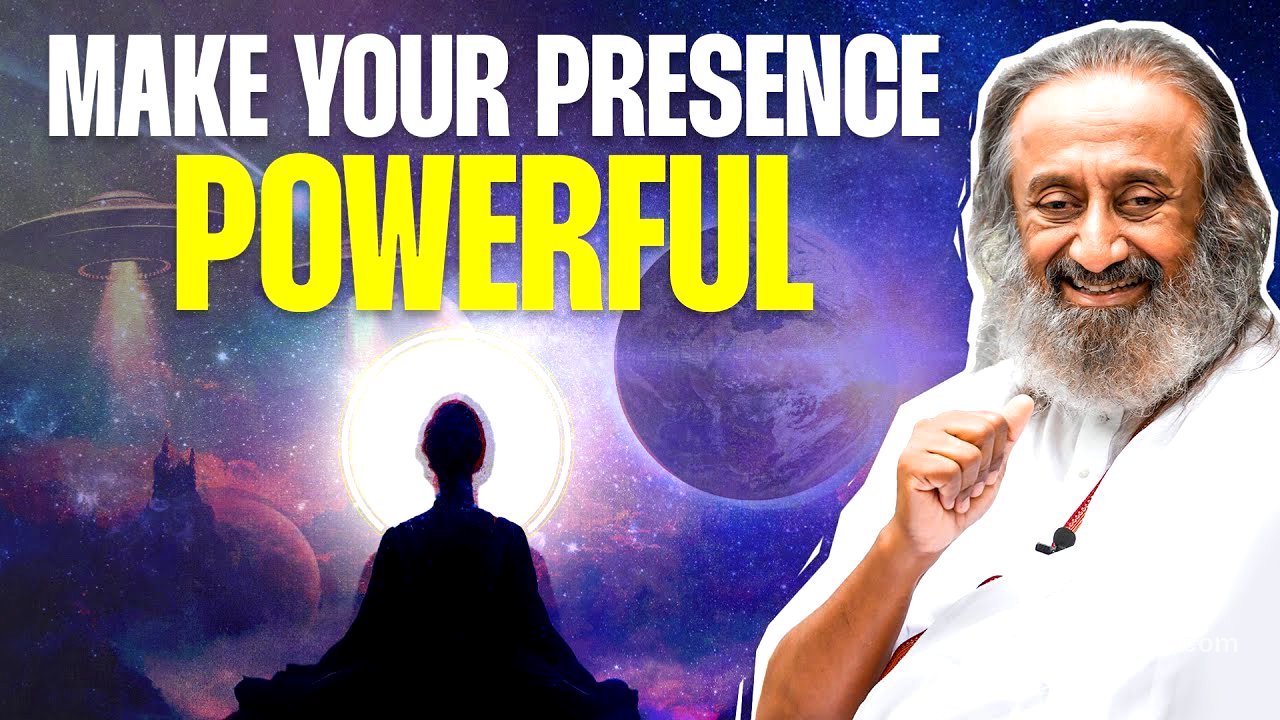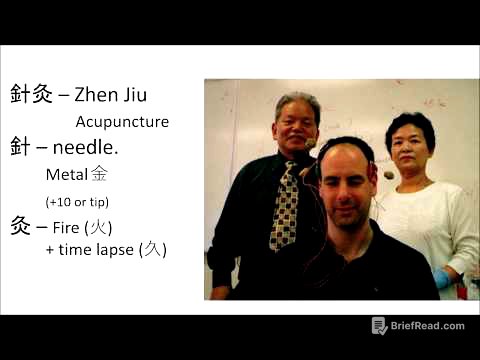TLDR;
Gurudev explains how our consciousness expresses itself in six modes: desire (Ichcha Shakti), knowledge (Gyan Shakti), action (Kriya Shakti), stillness (Shanta), discrimination (Vimarsh), and presence (Prakash). He talks about how getting stuck in desire, excessive knowledge, or constant judgment can lead to misery. The key is to use intellect to realize the impermanence of the world, let go of desires, and surrender to the present moment to experience true presence and uplift others.
- Consciousness expresses in six modes: desire, knowledge, action, stillness, discrimination, and presence.
- Imbalance in the first four modes leads to misery.
- Intellect should be used to realize "all this is nothing" to achieve serenity and presence.
- Living in presence naturally uplifts others.
The Six Modes of Consciousness and Their Roles [0:00]
Gurudev explains that our consciousness expresses itself in six ways or modes. These are Ichcha Shakti (desire), Gyan Shakti (knowledge), Kriya Shakti (action), Shanta (stillness), Vimarsh (discrimination), and Prakash (presence). Desires keep arising in the mind, creating a cycle. Knowledge involves learning and understanding. Action is a constant part of life. Shanta is the ability to become still and quiet. Vimarsh is the power of judgment and analysis. Prakash is pure presence.
Knowledge, Action, and the Cycle of Desires [1:08]
The talk moves into the third mode, Kriya Shakti, which is about activity. Activities are constantly happening, and every action is part of this Shakti. Then comes Shanta, the ability to be still and quiet, which everyone possesses and needs to develop. Next is Vimarsh, which is understanding and judging whether something is right or wrong. This analysis and judgment is also a power.
Presence (Prakash) as an Experience Beyond Logic [2:19]
Gurudev describes Prakash as presence, like light. In Yagnas, all six powers find fulfillment, creating high energy. This experience is beyond logical understanding and cannot be expressed in words. It's about feeling the energy beyond thinking. Experiencing presence requires letting go of the idea that the world is real, meaning not clinging to the past or future.
Letting Go of Desires to Live in the Present Moment [3:15]
To be fully present, one must let go of desires, as desire always puts you in the future. When a desire is fulfilled, presence arises, leading to bliss. Similarly, all questions must be resolved. The only judgment needed is that everything is a dream. Scientists are now saying the world doesn't exist, which Gurudev has been saying for a long time.
How Intellect and Ego Can Create Misery [4:43]
The intellect, if constantly questioning, can make you miserable because it turns into ego. However, if the intellect realizes that "it's all nothing," it leads to a different state. Vimarsh can either lead to endless questioning and misery or to the question of what is reality, which takes you to silence because there is no answer.
The Role of Discrimination (Vimarsha) and Surrender [5:16]
Asking "Who am I?" is also Vimarsh. Realizing that everything is Maya (illusion) and constantly changing brings presence (Prakash). This understanding, this Vimarsh, helps experience Prakash. If intellect isn't working, one should sit in the presence of a master, where the intellect shuts down, and presence arises.
Sankalpa (Intention) and Letting Go After It [6:20]
Gurudev talks about Sankalp, where you make a wish and then let it go, trusting that it will be taken care of or something better will happen. After making a Sankalp, one should wash their hands off it, recognizing that they are much bigger than their desires. Holding onto desires keeps us in smallness, while awareness makes us realize our vastness.
Recognizing the Value of Small Things but Transcending Them [7:29]
Every little thing in life has meaning, even small items like needles or buttons. Small things have significance, and one should be aware of the significance of insignificant things. The divine is permeating everything. Recognizing this, we honor it and move on to Shanta, the serene, quiet state of being, and then to presence.
Moving from Desire, Action, and Judgment to Serenity and Presence [8:38]
The six modes of mind, intellect, and ego are desire, action, knowledge, discrimination, and presence. Shanta (quietness) creates presence. Few reach the last two stages. Getting stuck in desire, excessive knowledge, or improper action leads to misery.
How Imbalance in the First Four Modes Leads to Misery [9:49]
If you don't know how to become quiet, you become miserable. Similarly, not acting when needed or being too quiet can also lead to misery. Vimarsh, constantly judging oneself and others, is also unhelpful.
Using Intellect Only to Realize “All This Is Nothing” [10:29]
Trying to fix all shortcomings is an endless task. If you keep filling your shortcomings or desires, presence doesn't come. Logic and Vimarsh should be used only to see that "this is all nothing" or that everything happens by some karma. This realization brings serenity and allows entry into another dimension.
Living in Presence That Naturally Uplifts Others [11:20]
Your presence should bring smiles to others. The takeaway from Yagna is that your presence makes others happy without needing to convince them of anything.









